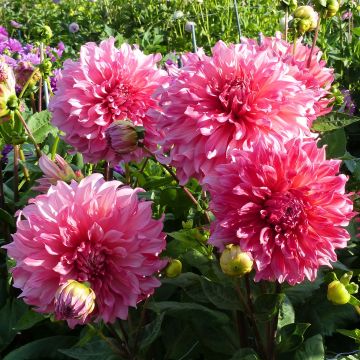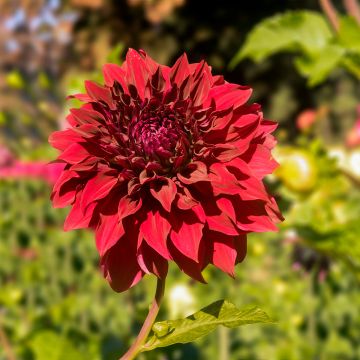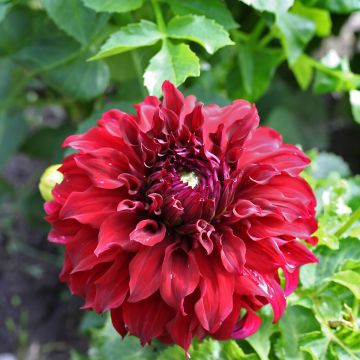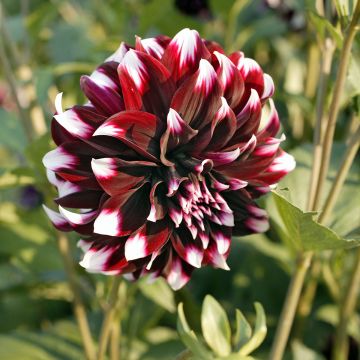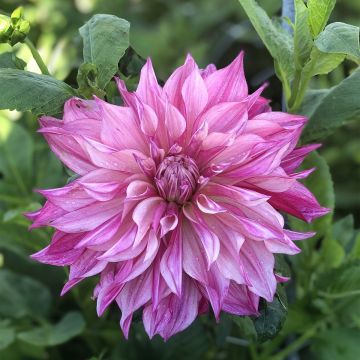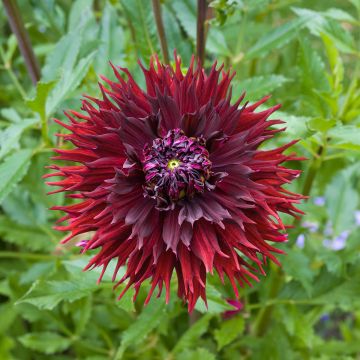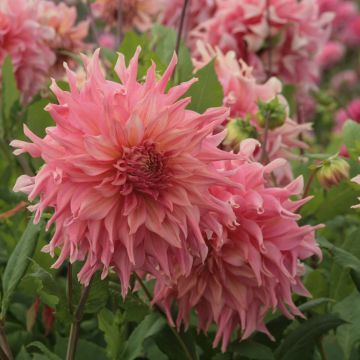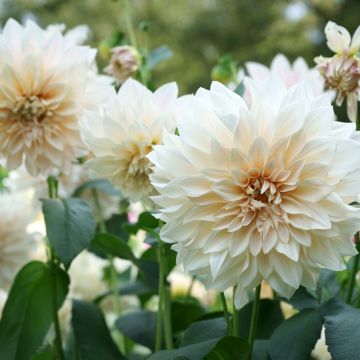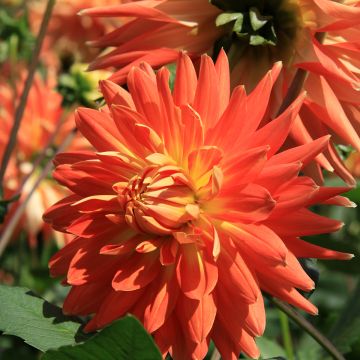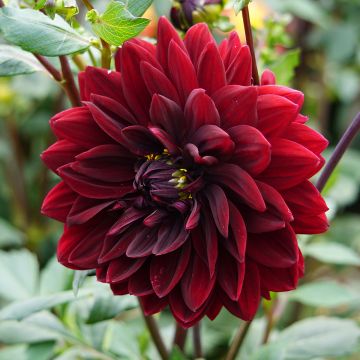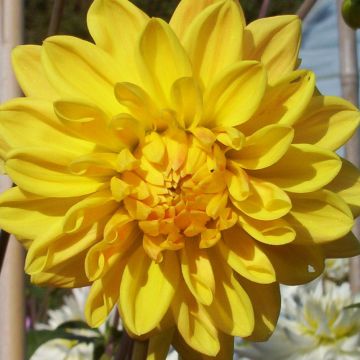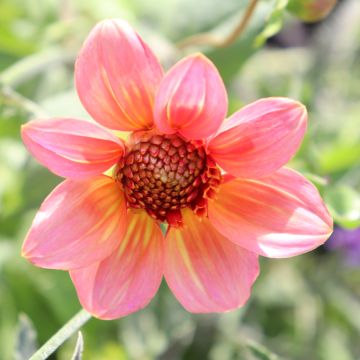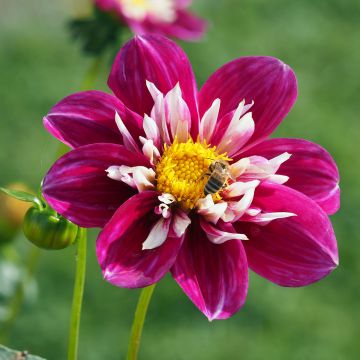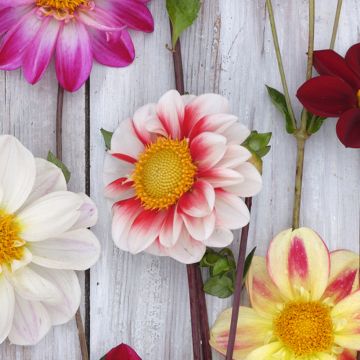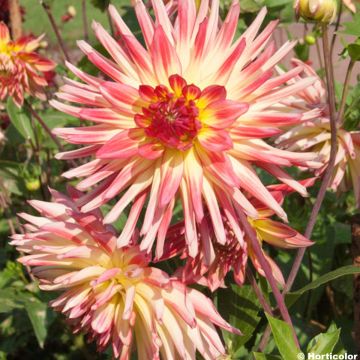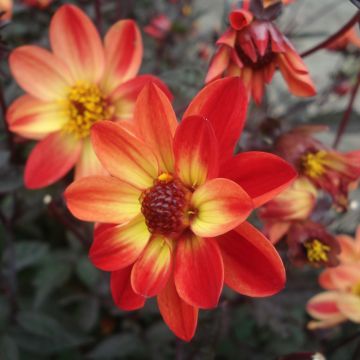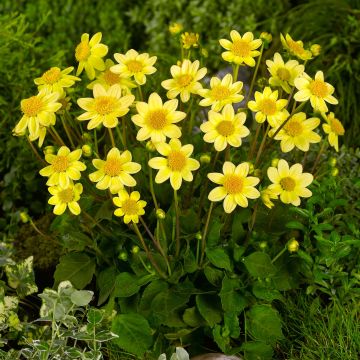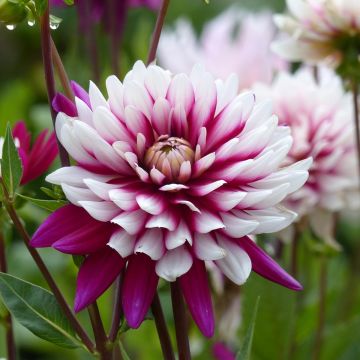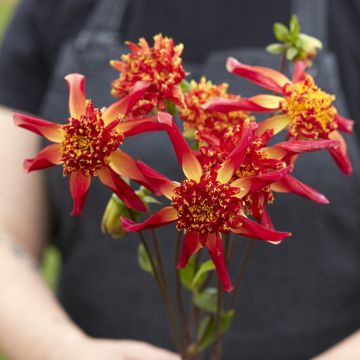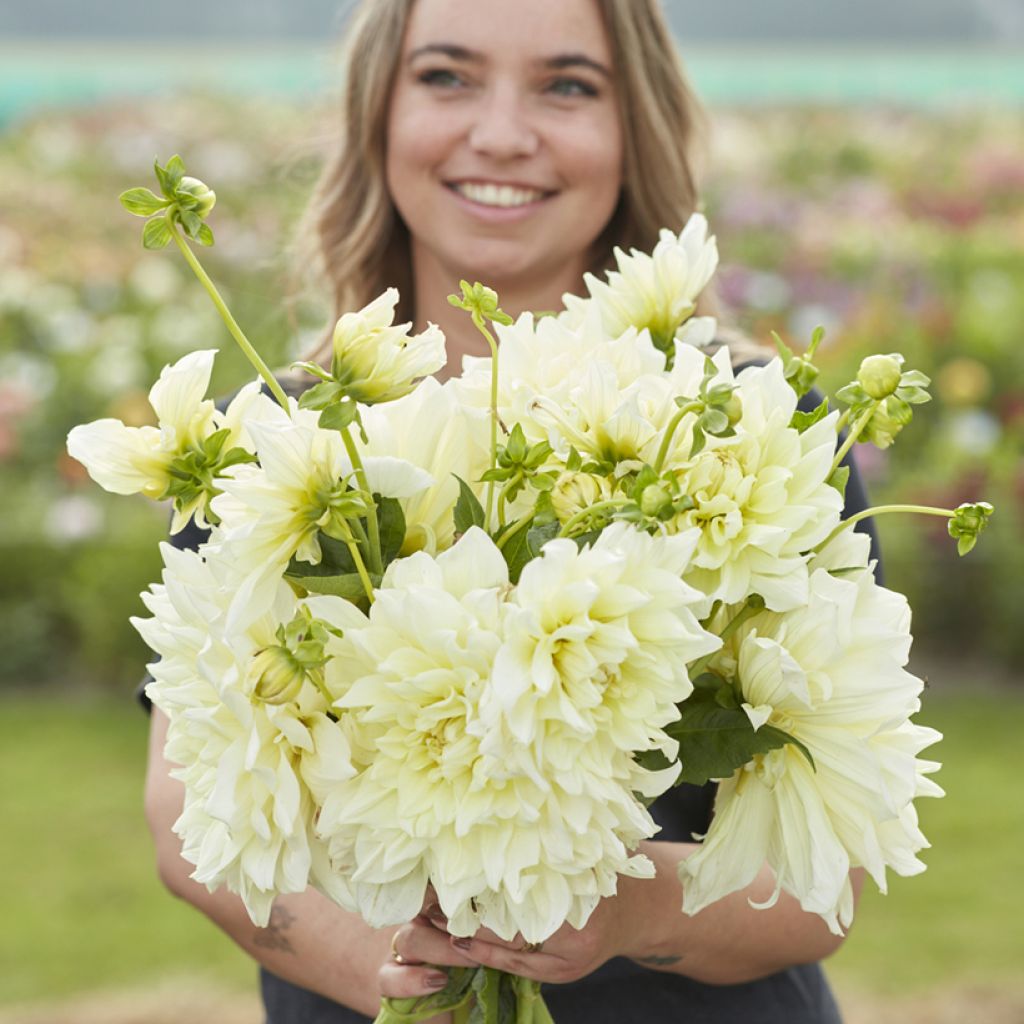

Dahlia Ice Breaker
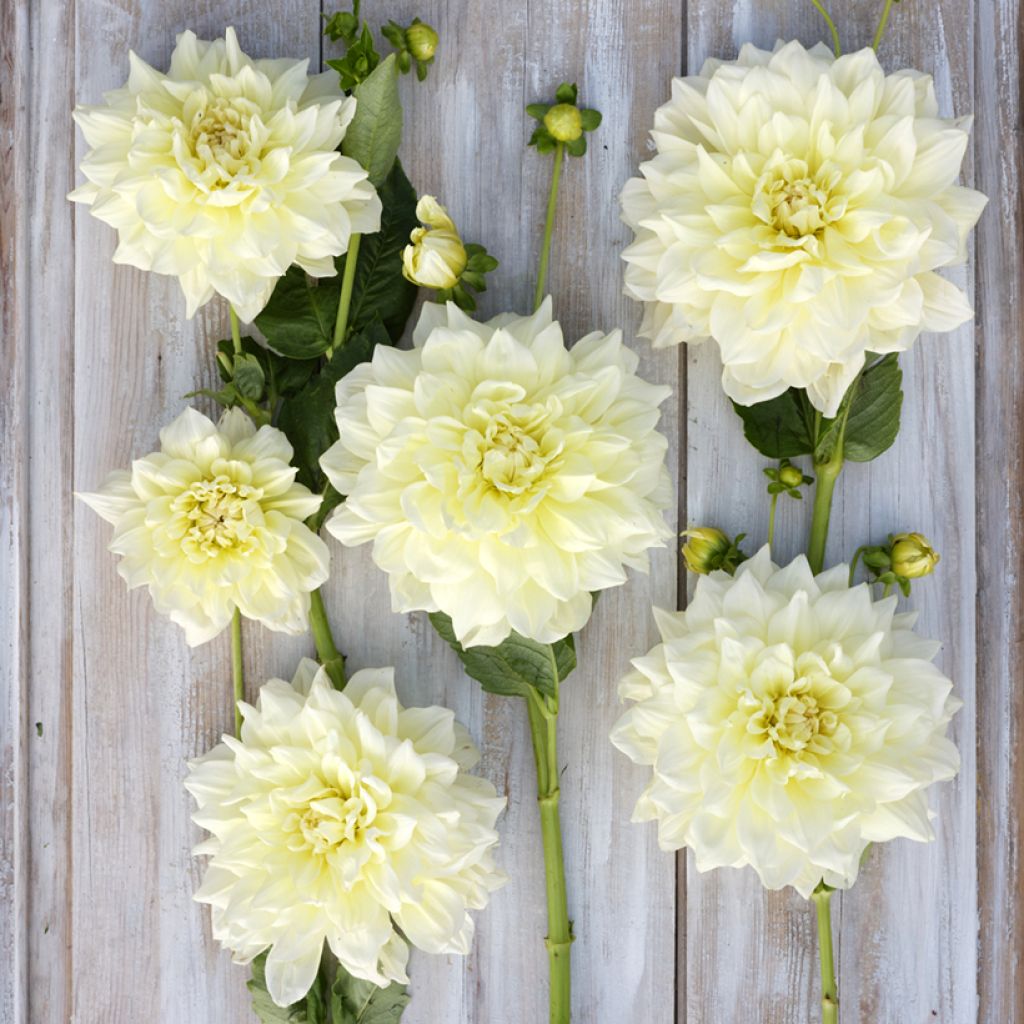

Dahlia Ice Breaker
Dahlia Ice Breaker
Dahlia Ice Breaker
Ornemental big flowering dahlia
This item cannot be shipped to the selected country
Delivery charge from €5.90
More information
Schedule delivery date,
and select date in basket
This plant carries a 6 months recovery warranty
More information
We guarantee the quality of our plants for a full growing cycle, and will replace at our expense any plant that fails to recover under normal climatic and planting conditions.
From €5.90 for pickup delivery and €6.90 for home delivery
Express home delivery from €8.90.
Does this plant fit my garden?
Set up your Plantfit profile →
Description
The Dahlia 'Ice Breaker' is a variety of giant Dahlia that will charm with its enormous very double flowers, slightly ruffled, combining white and pale yellow. The plant, of rather compact stature, blooms from summer to autumn. Pair it in your flowerbeds and floral compositions with light flowers like baby's breath or white cleomes.
The 'Ice Breaker' Dahlia, recently bred in the Netherlands, is a seedling of the 'Break Out' dahlia. Dahlias, from the aster family, are distant descendants of species originating from the high plateaus of Mexico.
The 'Ice Breaker' variety is classified in the group of Dahlias known as "giants" because its flowers are as wide as a plate. It also belongs to the Decorative Dahlias, a horticultural category defined by the shape of the flower. In this group, the coloured ligules of the head are regularly arranged in a spiral, they can be curved towards the stem or fringed for example. The Dahlia 'Ice Breaker' develops stems of around 1 m in height. Flowering begins in July and ends in October. The "flowers" are actually inflorescences called capitula. The outermost "petals" or ligules are quite large, flat, those in the centre are smaller and partially rolled. Their colour ranges from pale yellow to ivory white. The habit is bushy and erect, and the very branching stems are hollow. Its leaves are opposite, pinnatisect, meaning they are divided into 3 or 5 toothed lobes. The leaves and stems are of a fairly dark green.
To promote flower renewal, remove faded ones or regularly cut them to create gorgeous bouquets by combining several varieties. 'Ice Breaker' pairs particularly well with the light panicles of 'Bristol Fairy' baby's breath and white cleomes 'White Queen'. Also, pair it with the giant dahlias 'Tartan' or 'Blith Spirit' for a contrasting effect. In flowerbeds, it blends perfectly with white or yellow roses.
A star plant in borders and cottage gardens, Dahlias boldly accompany the most beautiful flowers, but are also appreciated alongside vegetable plants. In Mexico, this tuberous plant was initially cultivated as a root vegetable for consumption. However, its poor taste qualities relegated it to the status of an ornamental plant.
Report an error about the product description
Plant habit
Flowering
Foliage
Botanical data
Dahlia
Ice Breaker
Asteraceae
Ornemental big flowering dahlia
Cultivar or hybrid
Other Giant Dahlia
Planting and care
Plant your Ice Breaker dahlias in the spring in a deep, well-worked soil enriched, for example, with crushed horn or dehydrated blood. Place your tuber and crumble the soil well to refill without air pockets. Your dahlia should be covered with 6 cm of soil. At the end of planting, pour a litre of water. Water regularly for the first 6 weeks to help with rooting. Dahlias are sensitive to cold, so they need to be overwintered. In November, the first frosts will blacken the foliage, signaling it's time to dig them up. Carefully unearth the tubers. Remove as much soil as possible. Let the foliage dry so the tuber can replenish its reserves. When the foliage is dry, cut the stems to 10 cm from the tuber. Spread your bulbs in a crate on a newspaper. Store away from frost in a dry, cool, dark place.
Planting period
Intended location
Care
This item has not been reviewed yet - be the first to leave a review about it.
Dahlias
Haven't found what you were looking for?
Hardiness is the lowest winter temperature a plant can endure without suffering serious damage or even dying. However, hardiness is affected by location (a sheltered area, such as a patio), protection (winter cover) and soil type (hardiness is improved by well-drained soil).

Photo Sharing Terms & Conditions
In order to encourage gardeners to interact and share their experiences, Promesse de fleurs offers various media enabling content to be uploaded onto its Site - in particular via the ‘Photo sharing’ module.
The User agrees to refrain from:
- Posting any content that is illegal, prejudicial, insulting, racist, inciteful to hatred, revisionist, contrary to public decency, that infringes on privacy or on the privacy rights of third parties, in particular the publicity rights of persons and goods, intellectual property rights, or the right to privacy.
- Submitting content on behalf of a third party;
- Impersonate the identity of a third party and/or publish any personal information about a third party;
In general, the User undertakes to refrain from any unethical behaviour.
All Content (in particular text, comments, files, images, photos, videos, creative works, etc.), which may be subject to property or intellectual property rights, image or other private rights, shall remain the property of the User, subject to the limited rights granted by the terms of the licence granted by Promesse de fleurs as stated below. Users are at liberty to publish or not to publish such Content on the Site, notably via the ‘Photo Sharing’ facility, and accept that this Content shall be made public and freely accessible, notably on the Internet.
Users further acknowledge, undertake to have ,and guarantee that they hold all necessary rights and permissions to publish such material on the Site, in particular with regard to the legislation in force pertaining to any privacy, property, intellectual property, image, or contractual rights, or rights of any other nature. By publishing such Content on the Site, Users acknowledge accepting full liability as publishers of the Content within the meaning of the law, and grant Promesse de fleurs, free of charge, an inclusive, worldwide licence for the said Content for the entire duration of its publication, including all reproduction, representation, up/downloading, displaying, performing, transmission, and storage rights.
Users also grant permission for their name to be linked to the Content and accept that this link may not always be made available.
By engaging in posting material, Users consent to their Content becoming automatically accessible on the Internet, in particular on other sites and/or blogs and/or web pages of the Promesse de fleurs site, including in particular social pages and the Promesse de fleurs catalogue.
Users may secure the removal of entrusted content free of charge by issuing a simple request via our contact form.
The flowering period indicated on our website applies to countries and regions located in USDA zone 8 (France, the United Kingdom, Ireland, the Netherlands, etc.)
It will vary according to where you live:
- In zones 9 to 10 (Italy, Spain, Greece, etc.), flowering will occur about 2 to 4 weeks earlier.
- In zones 6 to 7 (Germany, Poland, Slovenia, and lower mountainous regions), flowering will be delayed by 2 to 3 weeks.
- In zone 5 (Central Europe, Scandinavia), blooming will be delayed by 3 to 5 weeks.
In temperate climates, pruning of spring-flowering shrubs (forsythia, spireas, etc.) should be done just after flowering.
Pruning of summer-flowering shrubs (Indian Lilac, Perovskia, etc.) can be done in winter or spring.
In cold regions as well as with frost-sensitive plants, avoid pruning too early when severe frosts may still occur.
The planting period indicated on our website applies to countries and regions located in USDA zone 8 (France, United Kingdom, Ireland, Netherlands).
It will vary according to where you live:
- In Mediterranean zones (Marseille, Madrid, Milan, etc.), autumn and winter are the best planting periods.
- In continental zones (Strasbourg, Munich, Vienna, etc.), delay planting by 2 to 3 weeks in spring and bring it forward by 2 to 4 weeks in autumn.
- In mountainous regions (the Alps, Pyrenees, Carpathians, etc.), it is best to plant in late spring (May-June) or late summer (August-September).
The harvesting period indicated on our website applies to countries and regions in USDA zone 8 (France, England, Ireland, the Netherlands).
In colder areas (Scandinavia, Poland, Austria...) fruit and vegetable harvests are likely to be delayed by 3-4 weeks.
In warmer areas (Italy, Spain, Greece, etc.), harvesting will probably take place earlier, depending on weather conditions.
The sowing periods indicated on our website apply to countries and regions within USDA Zone 8 (France, UK, Ireland, Netherlands).
In colder areas (Scandinavia, Poland, Austria...), delay any outdoor sowing by 3-4 weeks, or sow under glass.
In warmer climes (Italy, Spain, Greece, etc.), bring outdoor sowing forward by a few weeks.

































